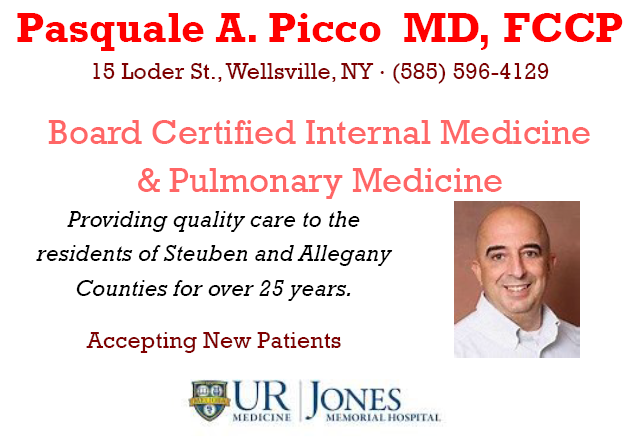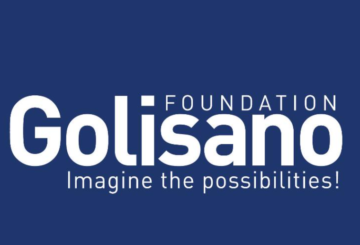Renowned economist delivers Alfred University keynote address
ALFRED, NY (May 11, 2024) – World-renowned economist Nadarajan “Raj” Chetty spoke to graduating students at Alfred University about the role education plays in creating a pathway to a better life and urged them to make the world a better place by creating opportunities for others.
Chetty, whose research focuses on designing effective government policies which address social and economic disparities, delivered the keynote address for Alfred University’s 188th commencement ceremony on Saturday, May 11, in the Galanis Family Arena.
“This is an important milestone to celebrate not just because it is a testament to all the hard work that got you here but because of the enduring power of education in our society,” said Chetty, the William A. Ackman Professor of Public Economics at Harvard University, and director of Opportunity Insights, a Harvard-based not-for-profit organization which uses “big data” to research ways to give children from disadvantaged backgrounds better chances of rising out of poverty. Opportunity Insights supports policymakers, practitioners, and communities to use its research and data to develop evidence-based solutions for improved economic mobility.
“I’ve devoted my life to studying how we can create better opportunities for everyone in society to thrive, no matter their background. And what I’ve found is that education – and especially the type of education you’ve all received here at Alfred – remains the surest pathway to a better life.”
Chetty received his Ph.D. from Harvard University in 2003 and his bachelor’s degree in economics, also from Harvard, in 2000. He was offered tenure when he was only 28, making him one of the youngest tenured professors in Harvard’s history. Before joining the faculty at Harvard, Chetty was a professor at UC-Berkeley and Stanford University. He is one of the most cited economists in the world. In 2008, The Economist and The New York Times listed him as one of the world’s top eight young economists.
He said he needs to look no further than his family to know the importance of education. His parents, both from small towns in South India, took advantage of educational opportunities, and later passed a passion for learning down to their children.
It was rare in India, Chetty said, for women to attend college, particularly if they had to move to another city to attend classes. The year before his mother graduated high school, a wealthy businessman opened a women’s college in her hometown. She attended that college, went on to medical school, and later completed her residency at the University of Wisconsin Madison. Chetty’s father, who grew up in a low-income family, applied for scholarships to study in the United States and received one to attend Wisconsin Madison.
“The effects of those educational opportunities have cascaded through the generations in our family. Thanks to my parents’ good fortune and hard work, my sisters and I were able to attend the best schools and colleges and are all scientists and doctors ourselves,” Chetty said. “Had the college in my mom’s hometown opened a year later, or had my father not received the scholarship to UW-Madison, I am certain I would not have the opportunities I have had, let alone be giving this talk today.”
Chetty said his organization, Opportunity Insights, has analyzed data relative to more than 100 million Americans to understand how to lift more children out of poverty and help them achieve the American Dream. Education, he says, has shown to be an important tool in affording upward mobility to people from disadvantaged backgrounds.
“What we’ve found is that people’s chances are greatly shaped by the environment in which they grow up. When a child moves to a neighborhood with better schools or gets a chance to attend a high-quality college, we see their lives transformed relative to other comparable kids who didn’t get the same chances. Opportunity matters. And education is one of the keys that opens the doors of opportunity,” he said.

“As a professor, I would like to think that the main reason for student success is what they learn from their teachers. That’s surely part of it, but it turns out to only be a small part. We’ve found that what’s perhaps even more important is the social capital we form in schools and colleges: the connections, and inspiration one gets from friends, mentors, and peers,” Chetty continued. “The milestone you have all achieved today has equipped you with the skills and social capital that will open doors for great success in the years to come. Now the question is what you will do with those opportunities going forward. My challenge to all of you is to take the gift you’ve been given today to carve your own path to success and make the world a better place, inspiring and spreading opportunity to others.”
In closing, Chetty spoke of the importance of pursuing intersections and promoting inclusivity and mentorships—Alfred University’s three core values—to affect positive change in the world.
“I hope you will take what you learned here at this great institution—not just the skills you’ve acquired but the spirit and mission of Alfred— with you throughout your lives,” he said. “Embrace change and adapt as the world around you evolves. Build communities that are inclusive and mentor the next generation. Most importantly, make the world a better, fairer place by bringing opportunity to those around you. Your success will be all our success.”
Chetty has received numerous awards for his research, including a 2012 MacArthur Fellowship—awarded annually by the John D. and Catherina T. MacArthur Foundation, typically to between 20 and 30 individuals, working in any field, who have shown “extraordinary originality and dedication in their creative pursuits and a marked capacity for self-direction”; Harvard’s George Ledlie Prize (2023), awarded for research that made the most valuable contribution to science, or in any way for the benefit of mankind; and the 2013 John Bates Clark medal, given to the economist under 40 whose work is judged to have made the most significant contribution to the field. According to the Chronicle of Higher Education, the John Bates Clark Medal “is widely regarded as one of the field’s most prestigious awards… second only to the Nobel Memorial Prize in Economic Sciences.”
Chetty and Jeffrey Maurer ’69, a Life Member of the University’s Board of Trustees, were awarded honorary degrees Saturday.






